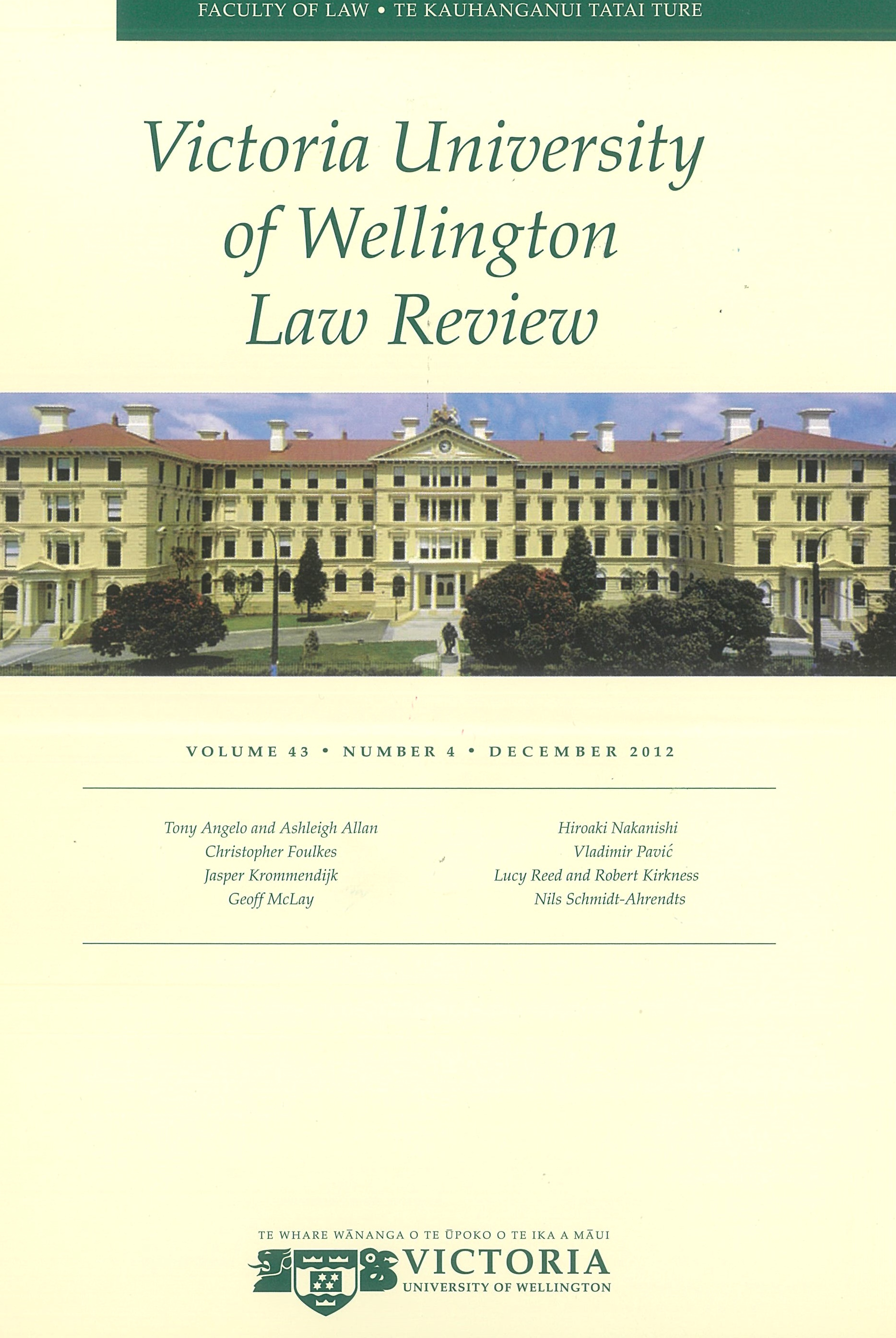Bribery and International Commercial Arbitration – the Role of Mandatory Rules and Public Policy
DOI:
https://doi.org/10.26686/vuwlr.v43i4.5016Abstract
Although designed to resolve private disputes, usually commercial in nature, arbitration may nevertheless encounter during its course allegations of impropriety and criminal behaviour. In the context of international commercial arbitration, the most common of those are allegations of bribery. However, tribunals may adjudicate only matters of private law and, should they establish existence of bribery, may draw only civil law consequences thereof. An additional problem in this respect is determining the body of rules that will be applicable in defining the very notion of bribery, since some aspects of bribery are almost universally prohibited, while the others are banned only in certain jurisdictions. In determining the law applicable to the matters of bribery, tribunals then face choice-of-law dilemmas. Each of the public policy techniques (overriding mandatory provisions, international and/or transnational) has its strengths and weaknesses.
Downloads
Downloads
Published
How to Cite
Issue
Section
License
Authors retain copyright in their work published in the Victoria University of Wellington Law Review.


